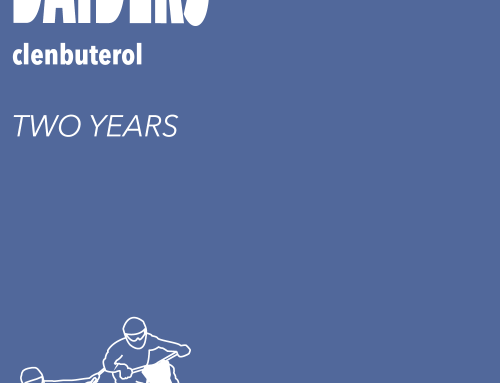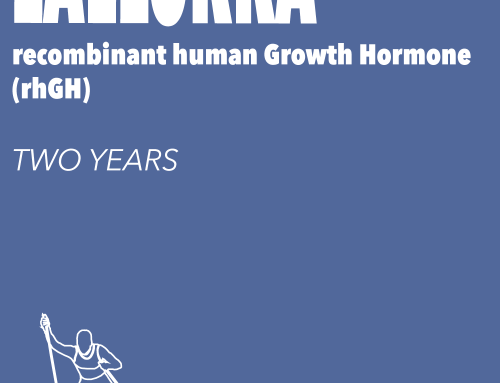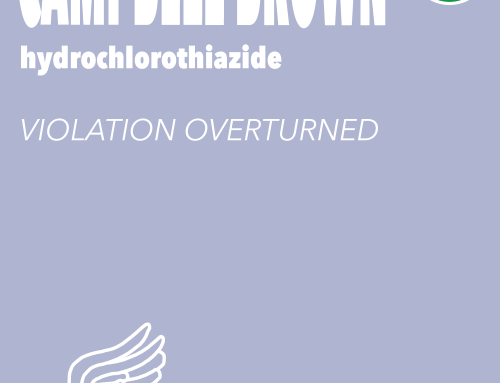CAS Award
Anderson Luís De Souza v. CBF & FIFA, CAS 2013/A/3395, May 26, 2014
By Brianna Quinn
For Brianna’s Bio – click here
In an interesting and topical development, FIFA, the Brazilian Football Confederation (CBF) and retired international footballer Anderson Luis De Souza (more commonly known as “Deco”) have recently settled – or more specifically dismissed – an alleged doping violation through a CAS Consent Award.[1]
The case is interesting in the following five respects:
- The athlete’s evidentiary requests;
- FIFA’s signature of the consent award despite its jurisdictional objections;
- The status of the Superior Tribunal de Justiça Desportiva do Futebol (STJD) in Brazil;
- The relevant principles under Swiss law that a CAS arbitrator must consider prior to issuing a consent award; and
- The loss of accreditation for the Rio de Janeiro laboratory and the arrangements that have had to be made for the 2014 World Cup in light of same.
Brief factual background
On 29 April 2013, Deco was informed of an adverse analytical finding (AAF) for the presence of hydrochlorothiazide (HCTZ – a diuretic) and tamoxifen (an estrogen receptor modulator). The sample had been collected by the (former) WADA-accredited laboratory in Rio de Janeiro, Brazil (the LADETEC).
On 26 September 2013 the STJD suspended Deco for a period of one year for the alleged anti-doping rule violation. Following the dismissal of a national-level appeal in Brazil, on 19 November 2013 Deco filed an appeal with the CAS.
Deco’s essential argument was that there were serious doubts concerning the validity and accuracy of his AAF as a result of: (a) WADA’s revocation of LADETEC’s accreditation in August 2013; (b) WADA’s decision to use the Lausanne WADA-accredited laboratory to conduct testing during the 2014 World Cup; and (c) CAS 2012/A/3334 (Carlos Alberto de Jesus v CBF, STJD and FIFA), where FIFA had made a statement that a departure from the International Standards had caused the athlete’s positive finding for the same two substances identified in Deco’s AAF.
Evidentiary requests
In light of these doubts, Deco made two evidentiary requests: (i) the review of the relevant documentation packages by an expert in anti-doping; and (ii) the performance of an additional analysis on his A- and B- Samples.
The CBF agreed to the evidentiary requests and FIFA noted that in light of LADETEC’s suspension it had asked Prof. Martial Saugy of the WADA-accredited laboratory in Lausanne, Switzerland, to review the documentation packages. FIFA noted that it did not fall within FIFA’s scope to request a retesting of the samples.
Following Prof. Saugy’s conclusion that the identification of tamoxifen had not been proven and that FIFA should be “very careful with this adverse analytical finding made by the Rio laboratory”, the samples were ultimately re-tested in the Lausanne laboratory. On 6 March 2014, FIFA confirmed that the Lausanne laboratory had concluded that no prohibited substances had been detected. The laboratory noted that traces of HCTZ had been detected however these were below the limit of detection set out in the International Standards. The laboratory also noted that the sample had arrived in an unusual container and that the chain of custody could not be guaranteed.
In light of these findings, the parties sought to resolve the dispute by conciliation and indicated their intent to sign an agreement which would be incorporated into a CAS consent award.
The parties reached a settlement agreement on 20 March 2014, such agreement confirming that it had not been established that Deco committed an anti-doping rule violation. The agreement was communicated to the STJD, which indicated that it had no objection to the contents of same.
FIFA and the issue of Jurisdiction
From the outset of the proceedings, FIFA notified the CAS that its communications could not be construed as acceptance of jurisdiction or the admissibility of the appeal.
Deco originally invoked jurisdiction on the basis of Articles 67(5) and (6) which provide for FIFA to appeal any internally final and binding doping decision to the CAS. Deco suggested that mutatis mutandis, and in light of the principle of equal treatment, he was the most interested (and harmed) party in the matter and should also have the right to appeal to CAS. Deco apparently referred to CAS jurisprudence on the matter, however no citations are included in the award.
The Sole Arbitrator was ultimately not required to take a position on this submission in light of the fact that all parties (including FIFA) had eventually agreed that CAS had jurisdiction to at least render a consent award.
The requirements of a CAS consent award
Once the possibility of a consent award had been raised, CAS informed the parties that a Panel or sole arbitrator would nevertheless need to be constituted and appointed to the matter. Deco proposed a sole arbitrator and with the agreement of the other parties Mr. Michele Bernasconi was ultimately appointed. In the decision, the Sole Arbitrator devoted a section to the requirements of a consent award under Swiss law, noting that:
“an arbitration tribunal has authority to issue an award embodying the terms of the parties’ settlement, if the contesting parties agree to the termination of their dispute in this manner. The Panel’s ratification of their settlement and its incorporation into a Consent Award serves the purpose of enabling the enforcement of their agreement.
[…] It is the task of the Sole Arbitrator to verify the bona fide nature of the Settlement Agreement, to ensure that the will of the Parties has not been manipulated by them to commit fraud and to confirm that the terms of the Settlement Agreement are not contrary to public policy principles or mandatory rules of the law applicable to the dispute.
The Sole Arbitrator held that there were no grounds to object or to disapprove of the terms of the Settlement Agreement, and was satisfied that it constituted a bona fide settlement of the dispute.”
The status of the STJD
The Sole Arbitrator also confirmed that, consistent with CAS jurisprudence:
“it has been recognized that ‘the STJD is a justice body which is an integral part of the organizational structure of the CBF, with no legal personality of its own’ and that ‘(at least) for international purposes the decisions of the SJTD, although independently reached, must be considered to be the decisions of the CBF. In other words, the CBF is to be considered responsible vis-à-vis FIFA (or other international sports bodies) for the decision adopted by the STJD’. As a result, it has been established by CAS jurisprudence that ‘the STJD has no autonomous legal personality and may not be considered as Respondent on its own in a CAS appeal arbitration concerning one of its rulings; consequently, the procedural position of the STJD before the CAS must be encompassed within that of the CBF’.”[2]
The Sole Arbitrator held that in light of these findings (and as confirmed by the STJD itself), the STJD’s non-participation as a party in the proceedings did not affect the validity nor the enforceability of the Settlement Agreement and Consent Award.
This discussion by the Sole Arbitrator demonstrates the importance of identifying the correct parties to an anti-doping appeal – which may not always be straightforward. Parties must ensure that the omission (or inclusion) of a party is properly thought out so as to avoid any issues of jurisdiction, admissibility (in the event that an appeal is not timely filed against the proper party/ies) and the validity and enforceability of the ultimate award.
FIFA World Cup 2014 anti-doping samples
The final interesting element to consider is the question of what FIFA will do with the anti-doping samples collected during the 2014 World Cup.
In this respect, WADA announced the revocation of LADETEC’s accreditation on 27 August 2013[3] which was followed by an announcement that the samples collected at the World Cup would be analysed in the Lausanne laboratory.[4]
As a follow up, FIFA has very recently posted an interesting question and answer section with its Chief Medical Officer Jiri Dvorak and the Director of the Lausanne laboratory Prof. Martial Saugy, with topics such as:
After the revocation of the accreditation of the lab in Rio you had to find another lab abroad to conduct the analysis. Why did you choose Lausanne in Switzerland. Weren’t there other options closer to Brazil?
Dvorak: To manage such an amount of samples we had the possibility of doing it in Montreal, Los Angeles, Cologne or Lausanne. We made the choice of Lausanne because of the high quality standards of the lab, its experience in the development of the biological profile and also because the samples from the FIFA Club World Cup 2012 and 2013 and the Confederations Cup 2013 were already stored there. This allows us to easily compare past results with the latest tests in the establishment of the biological profile.
With such a long trip, how will you ensure that the samples are safe?
Dvorak: We are taking all necessary measures to make sure the samples are safe and get to the laboratory as quick as possible. Up to now, from the out-of-competition controls that have been performed with the different teams around the world, 750 blood and urine samples have been delivered to Lausanne. The average time for delivery was 19:50 hours, the shortest in about 4 hours and the longest from several Latin American countries in less than 33 hours. All samples arrived in satisfactory conditions thanks to the use of special automatic cooling boxes that record the temperature during the whole transportation, which allows the lab to monitor the conditions of the samples.
Saugy: All the necessary measures have been taken to preserve the integrity of the samples in order to get the best biological and analytical information from the collected samples.
How will you manage to get the results of the analyses on time?
Dvorak: The lab in Lausanne is prepared to work 24/7 in order to initiate the analysis immediately upon arrival of the samples and with the objective of providing the results before the following games of the respective teams. This was also one of the reasons for our choice of the lab in Lausanne.
Saugy: We will make every effort to provide FIFA with the results prior to the next game. This is part of the contract and this is clearly our goal.
Isn’t it a huge challenge for the lab to handle so many tests in such a short time?
Saugy: It is indeed a big challenge for us, but we are already used to that kind of major event. Our laboratory is part of the CHUV (University Hospital in Lausanne) and is used to emergency services. And of course, the good relationship we have with FIFA helps a lot. Since the accreditation of the laboratory in Rio was revoked, we prepared carefully all the analyses and organisation with Professor Dvorak in order to get the samples in proper condition and to analyse them as soon as they arrive in the lab. This is a challenge, but the laboratory team is proud to be part of the event.[5]
[1] Award available at http://www.tas-cas.org/d2wfiles/document/7523/5048 /0/Consent20Award20Final20339520(201420052026).pdf
[2] Citations omitted but references were made to CAS 2007/A/1370 & 1376 and CAS 2011/A/2605.
[3] http://playtrue.wada-ama.org/news/wada-revokes-accreditation-of-rio-de-janeiro-laboratory/
[4] http://sports.yahoo.com/news/swiss-lab-handle-drug-tests-205726032–sow.html
[5] http://www.fifa.com/worldcup/news/y=2014/m=6/news=dvorak-saugy-outline-anti-doping-strategies-2354961.html





Leave A Comment